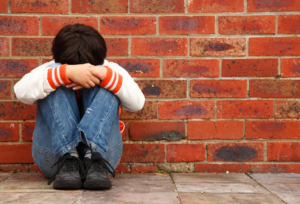Bullying
 Bullying is the repeated behaviour that intends to cause harm to another person(s). Individuals who bully, say, or do something intentionally hurtful to others and they keep doing it, with no sense of regret or remorse. They continue even when targets of bullying show or express their hurt or tell the aggressors to stop.
Bullying is the repeated behaviour that intends to cause harm to another person(s). Individuals who bully, say, or do something intentionally hurtful to others and they keep doing it, with no sense of regret or remorse. They continue even when targets of bullying show or express their hurt or tell the aggressors to stop.
Bullying affects everyone; those who are bullied, those who bully others, and those who witness bullying. Although bullying tends to happen in school, it is not just a school problem. Bullying can occur anywhere young people spend time together.
Children who are bullied may experience emotional, social, and sometimes physical harm. It can impact how they do in school, how they feel about themselves and it can be an issue for the whole family. Some people think bullying is just a part of growing up, however the consequences of bullying can be very damaging and long standing.
Types of bullying:
- Physical bullying involves hurting a person’s body or their possessions. This may include unwanted touching, hitting, kicking, pushing, spitting, taking, or damaging personal belongings.
- Verbal bullying is saying or writing mean things. Verbal bullying may be in the form taunting, malicious teasing, making threats and racist or homophobic comments.
- Social bullying involves hurting someone’s reputation or relationships. It may include spreading rumors, embarrassing someone in public or excluding from a group.
- Cyberbullying involves the use of cell phones, computers, the internet, and other devices to socially and/or verbally bully another.
Prevent bullying by teaching young people how to:
- Be caring of others.
- Get along.
- Deal with angry feelings.
- Stand up for themselves without being aggressive.
(Source: Department of Education, Government of NL, What Parents Can Do to Prevent Bullying)
Encourage children to talk about what is happening at school, in their neighborhoods, on the bus, or wherever they interact with others. No matter where it happens, it is important to know that bullying is not a normal part of growing up.
Services related to this information:
- Doorways: rapid ‘one session at a time’ counselling services.
- Bridge the gapp
Newfoundland and Labrador’s ‘go-to’ website for mental health information. Bridge the gapp offers self-help resources, links to local services, and invites people to share their personal stories. Bridge the gapp is free of cost and available to every resident in the province. The site is divided into adult and youth sections, however many services are appropriate for both.- Mental health and addictions services
- 811 HealthLine (Newfoundland & Labrador) – Call 811 or 1-888-709-2929 / TTY 1-888-709-3555
- 811 is free and confidential. 811 is available 24/7 and can provide support with mental health and addictions issues and more.
- Services formerly offered by the Provincial Mental Health Crisis Line are now offered by 811. Call 811 to speak with a registered nurse who is also a trained crisis intervener.
